
Comparing The TVOS & PVOS
Shawn McCraney contrasts TVOS, viewing the Bible as a rulebook, with PVOS, seeing it as a spiritual guide promoting love, unity, and subjective faith for growth.

Shawn McCraney contrasts TVOS, viewing the Bible as a rulebook, with PVOS, seeing it as a spiritual guide promoting love, unity, and subjective faith for growth.

Shawn discusses Jesus's imminent return, New Testament prophecy, rapture, historical context of Revelation, fall of Jerusalem, diverse Evangelical views, and environmental responsibility.
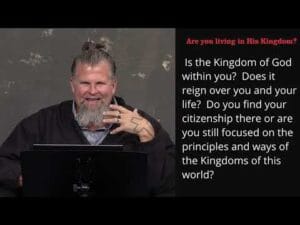
Shawn's teaching: God's Kingdom began in 70 AD, exists spiritually in believers, not through earthly means. Live under God's reign for peace, love, and spiritual growth.
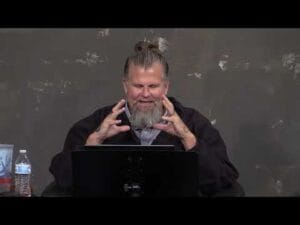
Shawn's teaching critiques Mormon theology, emphasizes God's grace, links Christianity to political/economic systems, and promotes personal spiritual exploration and empathy.

Teaching emphasizes moderation in alcohol, personal limits, accountability, kindness, and understanding in faith, challenging legalism, and promoting personal responsibility.

Shawn's teaching covers the "Book of Life," shifts in scriptural interpretation, challenges to traditional doctrines, his journey from Mormonism, and the importance of liberty.
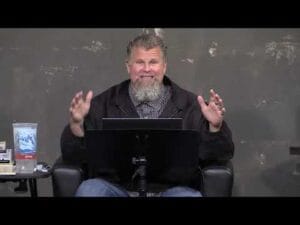
Script currently unavailable.

Christians should assess drug use's impact on growth and spirituality, balancing moderation and personal convictions. Emphasizes personal choice, responsibility, and faith over rules.

Shawn's teaching emphasizes Christian love, salvation through Christ, and contextual biblical interpretation. He links Revelation's locusts to Roman invasions, not future prophecy, and encourages personal spiritual engagement.
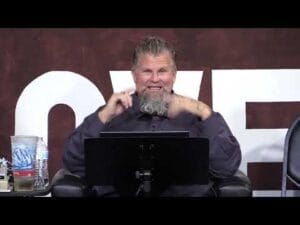
True freedom is found in Christ's teachings, not secular pursuits. Divine guidance offers liberation beyond worldly limits, growing through faith and Agape Love.
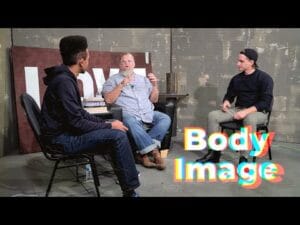
Social media amplifies body image issues, pressuring conformity to unrealistic standards. Embrace individuality, faith, and self-worth beyond appearance, fostering true connections.

Jesus' presence in Matthew 18:20 supports structured church discipline. Shawn critiques literal New Testament application today, urging personal faith over institutional rules.

Shawn McCraney critiques Mormonism's "us vs. them" mindset, urging humility and reliance on God's grace over self-empowerment, contrasting with Christian humility.
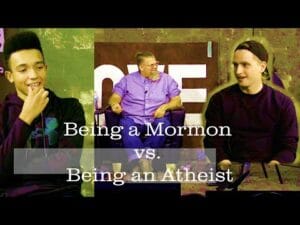
Shawn's teaching compares Mormonism and atheism, emphasizes openness to diverse beliefs, explores election skepticism, and envisions a future led by youth and truth.

Shawn McCraney critiques democracy in church governance, likening it to totalitarianism, and advocates for educated leadership, using Socratic philosophy and Christian Anarchism.
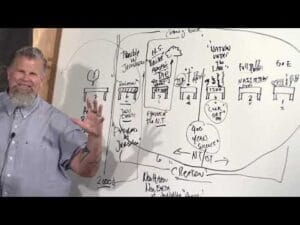
Shawn's teaching uses table-setting metaphors to illustrate God's reconciliation through Jesus, covering biblical events from Eden to Revelation, emphasizing spiritual transformation and direct connection with God.
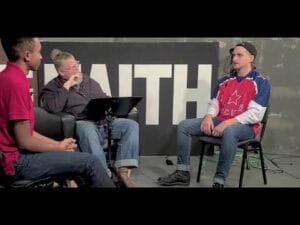
Faith in Christ varies culturally; Shawn critiques Mormonism, promotes free thinking, open dialogue, and challenges Calvinism's determinism, emphasizing freedom in faith.

Shawn McCraney warns against political entanglement for Christians, likening it to religious totalitarianism, advocating for personal freedom, individuality, and open dialogue.
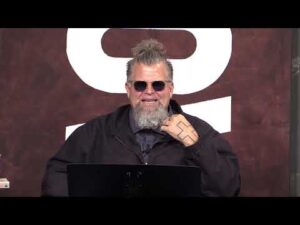
Shawn McCraney teaches that pain is constant in life, marked by guilt from sin or alienation in faith, but spiritual growth lessens sin's grip, with God's constant support.

Shawn's teaching highlights the tension between faith and politics, urging Christians to balance civic duties with spiritual priorities, prioritize Christ's teachings, and encourage independent thinking.